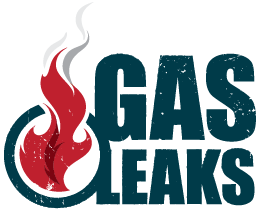
In the 1960s, the tobacco industry reacted to mounting scrutiny over their product’s lethal effects by introducing “low-tar” cigarettes. Though marketed as a healthier alternative, these turned out to be a profit-driven gimmick that was just as harmful and addictive as the original product.
Today the fossil fuel industry is once again pulling from the tobacco industry playbook to promote the false illusion of a cleaner version of methane gas. Alarmingly, the Biden Administration may be on the brink of endorsing this marketing ruse, which would provide cover for the continued expansion of fossil fuels and put our climate goals out of reach.
Tell the Biden Administration to say NO to methane
greenwashing schemes like “certified” gas.
Sign the petition at CertifiedDisasters.com!
“Certified” or “responsibly sourced” or “green” gas is the latest gas industry fad. As the world wakes up to the profound threat that methane poses to our climate, health and safety, the industry is desperate to appear that they’re cleaning up the product that they sell and project a facade of environmental responsibility.
Gas is almost entirely methane — a climate super pollutant more than 80 times as potent as carbon dioxide. And studies show that methane leaks all the time, from every part of the gas system. Fracking wells often vent unburned methane straight into the atmosphere. Pipelines leak methane constantly, as do the gas stoves and furnaces in our homes. Frequently the industry releases methane on purpose, to avoid pressure from building up in pipelines and causing catastrophic explosions.

Knowing they have a methane problem, the industry has enlisted private companies to “monitor” their gas drilling sites and pipelines. These monitoring services “certify” that the gas companies’ are limiting their methane, allowing companies to tell their customers that they’re getting the “cleanest” possible gas.
But these monitoring programs are highly problematic for a variety of reasons:
- Methane pollution is an unavoidable part of the gas system. Drillers often can’t avoid methane escaping into the atmosphere. There’s more than 3 million miles of gas pipelines in the United States, and research shows that they break and leak constantly. Accurately monitoring such a sprawling and leak-prone system is an impossible task.
- There is no universally accepted standard for “responsibly sourced” gas. Paid by the industry, these private monitoring companies have a significant financial incentive to paint a rosy picture of their clients’ methane pollution. These companies often withhold and refuse to release their data, preventing public verification and fact checking.
- Evidence shows that methane monitoring companies frequently miss massive pollution events. Oil Change International and Earthworks recently documented nearly two dozen examples of Project Canary, one of the US’s biggest methane monitoring companies, failing to detect huge releases of methane from Colorado’s oil and gas companies.
- Even if a company was able to stop every methane leak, gas is still a huge contributor to the climate crisis. According to climate and energy modeling experts like the International Energy Agency, averting catastrophic climate outcomes requires an urgent shift away from fossil fuels like methane gas and towards clean electricity — including no new oil and gas drilling as of 2021 and no new gas furnaces installed by 2025.
Reuters recently reported that the Department of Energy is working with methane monitoring companies to determine a standard for “certified” gas, which would help the industry market its gas exports as “climate-friendly” to buyers overseas. Beyond the climate impacts, that’s a potential disaster for communities of color on the Gulf Coast, who are facing a surge of newly proposed export facilities that pollute the air and water.
The science is clear: there’s no such thing as “clean” methane gas, no matter how much leaks during production. The Biden Administration shouldn’t be lending its stamp of approval to the fossil fuel industry’s latest marketing trick.

